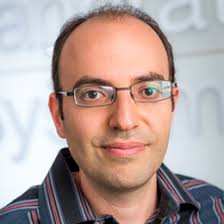
Mohammed AlQuraishi
Columbia University
USA
EMBO Practical Course
Integrative structural biology has become a key strategy for determining the structure of biological macromolecules and their complexes. This method entails characterising the 3D structure through an array of complementary techniques, subsequently combining the data to form a consensus model using computational methodologies.
This practical course offers a hands-on introduction to integrative structural biology. Participants will delve into the fundamentals of various experimental structure determination techniques including X-ray crystallography, cryo-EM, small-angle X-ray scattering, NMR, and mass spectrometry, through both lectures and practical exercises. Experts in the field will guide participants on how to analyse and interpret experimental data, and construct structural models across different resolution scales. A significant aspect of the course includes exploring how integrative structural biology addresses limitations of Artificial Intelligence-based structure prediction methods in modelling large complexes and their functional conformations. It will also highlight the emerging field of integrative structural biology of biomolecular complexes visualised directly in their cellular context.
The course location at the European Molecular Biology Laboratory in Hamburg and the Center for Structural Systems Biology on the DESY campus will provide on-site synchrotron SAXS and MX beamlines for training. A guided visit to the European XFEL site is also included in the programme.
Participants in the early stage of their research careers (Ph.D. students and early postdocs) will be given preference based on their motivation letter. Preference will also be given to applicants who:
i) are entering the field of integrative structural biology
ii) plan to integrate multiple structural techniques within their own projects or plan to develop integrative modeling methods
iii) work on projects that will clearly benefit from an integrative approach.
This edition will train the participants to explore innovative strategies and techniques in integrative structural biology to overcome these limitations. this course equips a new generation of interdisciplinary structural biologists with the necessary skills to push the boundaries of the field. Through lectures, practical sessions, and collaborative interactions, participants gain insights into the latest advancements and develop a holistic understanding of integrating diverse structural biology techniques.

Columbia University
USA
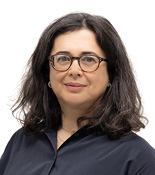
EMBL Hamburg
Germany
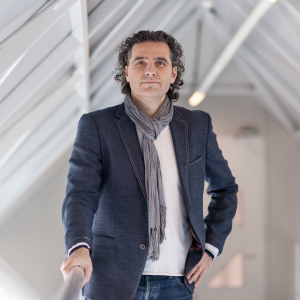
Utrecht University
The Netherlands
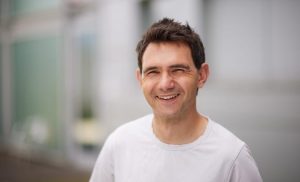
Science and Technology
Facilities Council
UK
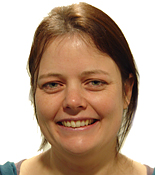
EMBL Hamburg
Germany
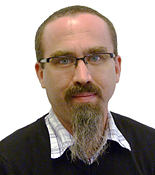
EMBL Hamburg
Germany
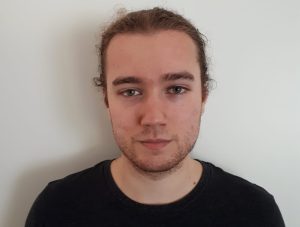
Delft University of Technology
The Netherlands
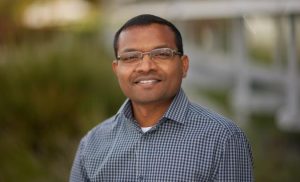
Science and Technology
Facilities Council
UK
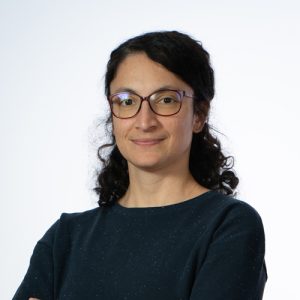
Izmir Biomedicine and
Genome Center (IBG)
Turkey
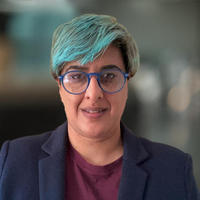
University of Oxford
UK

FMP Berlin
Germany
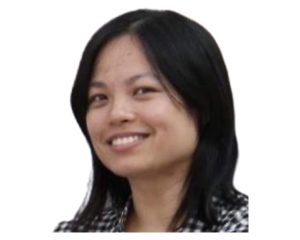
Leibniz Institute of Virology
Germany

EMBL Hamburg
Germany
Leibniz Institute of Virology
Germany
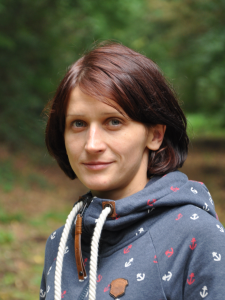
MPI for Biophysics Frankfurt
Germany
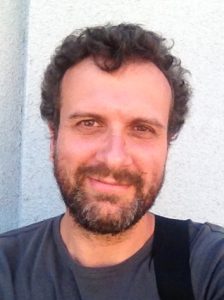
Microbiologie moléculaire et
biochimie structurale
(MMSB-UMR 5086 CNRS)
France
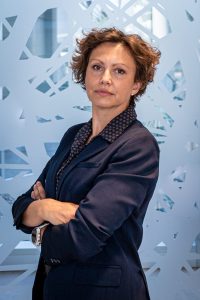
Human Technopole
Italy
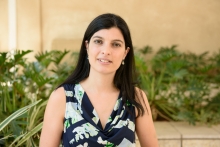
Weizmann Institute
Israel
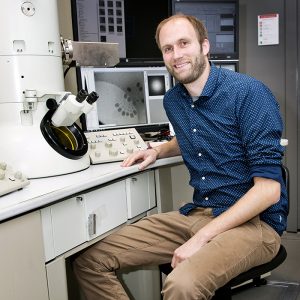
Kavli Institute of Nanoscience
The Netherlands
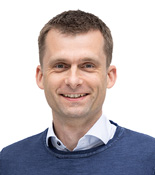
EMBL Hamburg
Germany
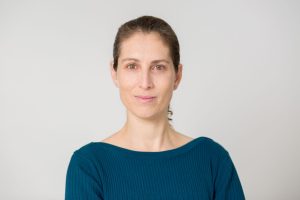
CSSB/LIV/UKE
Germany
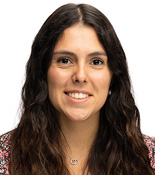
Course and Conference Officer
EMBL Heidelberg
Germany

Scientific Training Officer
EMBL Heidelberg
Germany
Are you on social media? Post using #EMBOStructBio and don’t forget to tag @EMBLEvents.
| Time (Europe/Berlin) | Speaker |
|---|---|
| 18:00 | Arrival to the hotels |
| Time (Europe/Berlin) | Speaker |
|---|---|
| 08:15 – 09:15 | Registration |
| 09:15 – 10:00 | Welcome & Introductions Jan Kosinski – EMBL Hamburg, Germany Arjen Jakobi – Kavli Institute of Nanoscience, The Netherlands Maya Topf – CSSB/LIV/UKE, Germany |
| 10:00 – 11:00 | Lecture: Integrative structure determination Jan Kosinski – EMBL Hamburg, Germany |
| 11:00 – 11:30 | Coffee Break |
| 11:30 – 12:30 | Lecture: Integrative in-cell structural biology of cilia and IFT biology Gaia Pigino – Human Technopole, Italy |
| 12:30 – 14:00 | Lunch |
| 14:00 – 17:00 | eXFEL team: Excursion to the European XFEL |
| 17:00 – 19:00 | Student Talks |
| 19:00 – 22:00 | Dinner and Discussion |
| Time (Europe/Berlin) | Speaker |
|---|---|
| 08:55 – 09:00 | Overview of the day Jan Kosinski – EMBL Hamburg, Germany |
| 09:00 – 10:00 | Lecture: Introduction to X-ray crystallography Thomas Schneider – EMBL Hamburg, Germany |
| 10:00 – 10:15 | Coffee Break |
| 10:15 – 11:15 | Lecture: Protein structure prediction Mohammed AlQuraishi – Columbia University, USA |
| 11:15 – 11:30 | Short break and meet the speakers |
| 12:00 – 13:00 | Lunch |
| 13:00 – 16:00 | Practical Session Pratical A: X-ray crystallography demo Isabel Bento – EMBL Hamburg, Germany Thomas Schneider – EMBL Hamburg, Germany Pratical B: Modeling with AlphaFold Agnieszka Obarska-Kosinska – MPI for Biophysics Frankfurt, Germany Dmitry Molodenskiy – EMBL Hamburg, Germany |
| 16:00 – 16:15 | Coffee Break |
| 16:15 – 19:15 | Practical Session Practical B: Modeling with AlphaFold Agnieszka Obarska-Kosinska – MPI for Biophysics Frankfurt, Germany Dmitry Molodenskiy – EMBL Hamburg, Germany Practical A: X-ray crystallography demo Isabel Bento – EMBL Hamburg, Germany Gleb Bourenkov – EMBL Hamburg |
| 19:15 – 20:30 | Dinner and Discussion |
| 20:30 – 22:00 | Student Talks |
| Time (Europe/Berlin) | Speaker |
|---|---|
| 08:55 – 09:00 | Overview of the day Arjen Jakobi – Kavli Institute of Nanoscience, The Netherlands |
| 09:00 – 10:00 | Lecture: Introduction to Electron Microscopy Giulia Zanetti – UCL/Birkbeck/Crick, UK |
| 10:00 – 11:00 | Lecture: Fitting to EM maps Maya Topf – CSSB/LIV/UKE, Germany |
| 11:00 – 11:30 | Coffee Break |
| 11:30 – 12:30 | Lecture: Model refinement to X-ray and EM data Arjen Jakobi – Kavli Institute of Nanoscience, The Netherlands |
| 12:30 – 14:00 | Lunch & Career Session |
| 14:00 – 14:30 | Lecture: Model validation Agnel Joseph – Science and Technology Facilities Council, UK |
| 14:30 – 17:00 | Practical Session C: Rigid and flexible fitting into cryoEM maps Maya Topf – CSSB/LIV/UKE, Germany Guendalina Marini – UKE, Germany Tom Mulvaney – Leibniz Institute of Virology, Germany Agnel Joseph – Science and Technology Facilities Council, UK |
| 17:00 – 17:15 | Coffee Break |
| 17:15 – 19:45 | Practical Session D: High-resolution model refinement Arjen Jakobi – Kavli Institute of Nanoscience, The Netherlands Tom Burnley – Science and Technology Facilities Council, UK Agnel Joseph – Science and Technology Facilities Council, UK Maarten Joosten – Delft University of Technology, The Netherlands |
| 19:45 – 22:00 | Dinner and Discussion |
| Time (Europe/Berlin) | Speakers |
|---|---|
| 08:55 – 09:00 | Overview of the day Maya Topf – CSSB/LIV/UKE, Germany |
| 09:00 – 10:00 | Lecture: Introduction to SAXS Melissa Graewert – EMBL Hamburg, Germany |
| 10:00 – 11:00 | Lecture: Modeling based on SAXS Cy Jeffries – EMBL Hamburg, Germany |
| 11:00 – 11:30 | Coffee Break |
| 11:30 – 12:15 | Practical Session Practical E: SAXS measurements Cy Jeffries – EMBL Hamburg, Germany Aleksi Sutinen – MBL Hamburg, Germany Practical F: SAXS data analysis Melissa Graewert – EMBL Hamburg Dmitry Molodenskiy – EMBL Hamburg, Germany |
| 12:15 – 13:00 | Practical Session Practical F: SAXS data analysis Melissa Graewert – EMBL Hamburg Dmitry Molodenskiy – EMBL Hamburg, Germany Practical E: SAXS measurements Cy Jeffries – EMBL Hamburg, Germany Aleksi Sutinen – MBL Hamburg, Germany Aleksi Sutinen – MBL Hamburg, Germany |
| 13:00 – 14:30 | Lunch |
| 14:30 – 18:00 | Practical Session G: Integrative modelling using SAXS data Melissa Graewert – EMBL Hamburg, Germany Dmitry Molodenskiy – EMBL Hamburg, Germany |
| 18:00 – 22:00 | Poster Session with drinks and pizza dinner |
| Time (Europe/Berlin) | Speaker |
|---|---|
| 08:55 – 09:00 | Overview of the day Arjen Jakobi – Kavli Institute of Nanoscience, The Netherlands |
| 09:00 – 10:00 | Lecture: Molecular dynamics simulations Syma Khalid – University of Oxford, UK |
| 10:00 – 11:00 | Lecture: Structure determination of large complexes using NMR and cryo-EM Rina Rosenzweig – Weizmann Institute, Israel |
| 11:00 – 11:30 | Coffee Break |
| 11:30 – 12:30 | CSSB EM facility tour and imaging “show and tell” by CryoEM facility staff |
| 12:30 – 14:00 | Lunch |
| 14:00 – 17:00 | Social event: Tour to HafenCity and a harbor boat trip (optional) or Free afternoon (optional discussions with tutors) |
| Time (Europe/Berlin) | Speaker |
|---|---|
| 08:55 – 09:00 | Overview of the day Maya Topf – CSSB/LIV/UKE, Germany |
| 09:00 – 10:00 | Lecture: Mass spectrometry techniques in structural and cell biology Fan Liu – FMP Berlin, Germany |
| 10:00 – 11:00 | Lecture: Crosslink-guided modeling Riccardo Pellarin – Microbiologie moléculaire et biochimie structurale, France |
| 11:00 – 11:30 | Coffee Break |
| 11:30 – 12:30 | Lecture: Integrative modeling with Haddock Alexandre Bonvin – Utrecht University, The Netherlands |
| 12:30 – 14:00 | Lunch |
| 14:00 – 16:00 | Practical Session H: Integrative modeling with HADDOCK – part 1 Ezgi Karaca – Izmir Biomedicine and Genome Center, Turkey Alexandre Bonvin – Utrecht University, The Netherlands Dmitry Molodenskiy – EMBL Hamburg, Germany |
| 16:00 – 16:30 | Coffee Break |
| 16:30 – 19:30 | Practical Session H: Integrative modeling with HADDOCK – part 2 Ezgi Karaca – Izmir Biomedicine and Genome Center, Turkey Alexandre Bonvin – Utrecht University, The Netherlands Dmitry Molodenskiy – EMBL Hamburg, Germany |
| 19:30 – 21:00 | Dinner and Discussion |
| Time (Europe/Berlin) | Speaker |
|---|---|
| 08:55 – 09:00 | Overview of the day Jan Kosinski – EMBL Hamburg, Germany |
| 09:00 – 10:30 | Practical Session I: AI-powered integrative modeling – part 1 using Assembline, RoseTTAFold, AlphaLink, XLMS tools and TEMPy-ReFF Jan Kosinski – EMBL Hamburg, Germany Maya Topf – CSSB/LIV/UKE, Germany Dmitry Molodenskiy – EMBL Hamburg, Germany Agnieszka Obarska-Kosinska – MPI for Biophysics Frankfurt, Germany Riccardo Pellarin – Microbiologie moléculaire et biochimie structurale, France Karen Manalastas-Cantos – Leibniz Institute of Virology, Germany Thomas Mulvaney – Leibniz Institute of Virology, Germany |
| 10:30 – 11:00 | Coffee Break |
| 11:00 – 12:00 | Practical Session I: AI-powered integrative modeling – part 2 using Assembline, RoseTTAFold, AlphaLink, XLMS tools and TEMPy-ReFF Jan Kosinski – EMBL Hamburg, Germany Maya Topf – CSSB/LIV/UKE, Germany Dmitry Molodenskiy – EMBL Hamburg, Germany Agnieszka Obarska-Kosinska – MPI for Biophysics Frankfurt, Germany Riccardo Pellarin – Microbiologie moléculaire et biochimie structurale, France Karen Manalastas-Cantos – Leibniz Institute of Virology, Germany Thomas Mulvaney – Leibniz Institute of Virology, Germany |
| 12:00 – 13:30 | Lunch |
| 13:30 – 16:00 | Practical Session I: AI-powered integrative modeling – part 3 using Assembline, RoseTTAFold, AlphaLink, XLMS tools and TEMPy-ReFF Jan Kosinski – EMBL Hamburg, Germany Maya Topf – CSSB/LIV/UKE, Germany Dmitry Molodenskiy – EMBL Hamburg, Germany Agnieszka Obarska-Kosinska – MPI for Biophysics Frankfurt, Germany Riccardo Pellarin – Microbiologie moléculaire et biochimie structurale, France Karen Manalastas-Cantos – Leibniz Institute of Virology, Germany Thomas Mulvaney – Leibniz Institute of Virology, Germany |
| 16:00 – 17:00 | Summary & Round Table including discussion on responsible conduct of research |
| 17:00 – 19:00 | Break, free time |
| 19:00 – 22:00 | Dinner and Discussion |
The course is limited to 16 participants. For selection purposes, please note that your application will not be considered without a letter of motivation.
Registration fees include admission, course materials, meals and coffee breaks. This EMBO course includes accommodation and transportation to and from the DESY Guest House to the venue.
| Academia | €250 |
| PhD Student | €250 |
| Industry | €1000 |
A letter to support your visa application will be issued, on request, once payment of the registration fee is confirmed. We recommend that you book your visa appointment as soon as possible, to avoid any delay with your visa application.
The registration fee should be paid only after acceptance to the course. The results will be announced approximately 2-3 weeks after the application deadline.
After you have logged in and successfully registered, you will receive an email asking you to submit your motivation letter. Click on the link provided and enter your motivation letter in the text box provided. Alternatively you can submit your motivation letter by clicking on the link on the confirmation page directly after registering.
Instructions
Please note:
For detailed instructions, please watch our video on how to submit a course motivation letter.
For further information about registration and motivation letter submission please refer to the FAQ page.
Limited financial assistance is provided in the form of registration fee waivers, travel grants and childcare grants.
Your place in the meeting is only confirmed by paying the registration fee, which is mandatory even when receiving a fee waiver.
The fee waiver will cover the registration sum that you have paid to attend the course.
The travel grant will cover the cost of travel (airfare, train, bus, taxi, accommodation, visa, and/or registration fees*) and is provided up to specified caps which are normally as follows:
– up to €400 for participants travelling to an EMBL Course within Europe.
– up to €1000 for participants travelling to an EMBL Course from outside Europe.
– up to €500 for any participant travelling to an EMBO Practical Course.
– up to €1000 for any participant working in Chile, India, Singapore or Taiwan travelling to an EMBO Practical Course.
– up to €700 for any participant working in Croatia, Czech Republic, Estonia, Greece, Hungary, Italy, Lithuania, Luxembourg, Poland, Slovenia, and Turkey travelling to an EMBO Practical Course.
*Registration fees are only covered for EMBO Practical Courses
The organisers may reduce the grant cap to accommodate more participants. Recipients will be notified of their travel cap amount when they are informed of the outcome of their application. Original receipts must be provided with your signature for all costs incurred within two months of completion of travel. Scanned copies cannot be accepted.
There is the possibility to apply for a childcare grant to offset child care costs incurred by participants, speakers, trainers and organisers when attending a course. Eligible costs include (but are not limited to) fees for a babysitter or child-care facility and travel costs for a caregiver. Please note that priority will be given to early-stage researchers. There is a limited amount of funding available for the childcare grants and funds will be distributed amongst eligible applicants.
You may apply for financial assistance when submitting your motivation letter for courses. In your application, you will be asked to answer questions regarding why your lab cannot fund your attendance and how your attendance will make a difference to your career. Application for financial support will not affect the outcome of your registration application.
For the Boehringer Ingelheim Fonds Travel Grant, there is a pre-application question during the motivation letter submission process, and if selected you will be requested to complete a standard form and documentation consisting of your travel expense estimation.
The scientific organisers will select the recipients of registration fee waivers and travel grants during the motivation letter or abstract selection process. Results will be announced approximately 6 – 8 weeks before the event start date, however for some events this may be delayed. Selection results do not impact your admission to the meeting. Selection for registration fee waivers and travel grants is based on scientific merit, your current work or study location, the reasons for needing financial support, and the impact this event will have on your career.
Childcare grants will be allocated in the same timeframe (6-8 weeks before the event start date). Please note that priority will be given to early-stage researchers.
Costs will be reimbursed after the meeting only once a reimbursement form and original receipts (from travel costs) have been received.
See our list of external funding opportunities and for further information about financial assistance please refer to the FAQ page.
Reservations for single room accommodation at the DESY hostel have been made. Note, accommodation is included in the registration fee. The guest house is within a few minutes’ walk from the EMBL laboratories and P12 beamline.
Address: EMBL Hamburg, Notkestraße 85, Buliding 48e, 22607 Hamburg, Germany
From Hamburg airport take line S1 to Othmarschen (18 stops, 45 min), change to bus number 1 towards Rissen or Schenefelder Holt to Zum Hünengrab (DESY) (5 stops, 10 min).
From Hamburg-Altona train station take bus number 1 to Zum Hünengrab (DESY) (15 stops, 25 min). Ticket costs Public Transport: ca. €3.60 and a taxi will be around €45.
Below you will find the software and technical requirements for this course.
The EMBL eCampus learning platform will be used to collaborate, communicate and network with all of the course participants. All participants will receive information on how to join shortly before the course. We recommend using Chrome, Safari or Mozilla Firefox browsers for eCampus.
Sponsorship opportunities
We offer a variety of event sponsoring possibilities, with the flexibility to select a set sponsorship package or combine individual sponsorship options to suit your event budget. Discounts are available for companies sponsoring multiple events at EMBL Heidelberg. View other events, or contact sponsorship@embl.de for further information.
If you are interested in becoming a media partner of this event, please visit our media partnerships webpage.
EMBL wishes to warn sponsors of EMBL conferences and courses of fraudulent schemes purporting to offer sponsorship opportunities on behalf of EMBL or affiliated with EMBL officials. One current scam campaign of which we are aware is conducted using the name ‘Judy Eastman’ (judy@gopcontact.a2hosted.com) and entails approaches to sponsors offering sponsorship opportunities on EMBL’s behalf. Please be kindly advised that all relevant communication regarding sponsorship of EMBL conferences, symposia and courses is handled by EMBL directly and is sent from an official EMBL account. EMBL does not work with any external providers on sponsorship acquisition.
Please also note that:
Suspicious communications purportedly from, for or on behalf of EMBL should be reported to EMBL at the following email address sponsorship@embl.de.
Want to let others know you’re attending this event? Take a look at our shareable media and feel free to use them in your social media channels or presentations.

Date: 17 - 24 Nov 2024
Location: EMBL Hamburg
Venue: EMBL Hamburg (Building 48e, second floor)
Deadline(s):
Closed
Organisers:
Contact: Luana Ribeiro